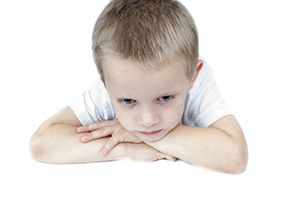 The way we, as parents and caregivers, respond to children’s questions and worries will help them through difficult times and teach them to cope during future challenges. We wanted to provide you with information to help you recognize signs of stress in children and offer you suggestions for helping children manage stress.
The way we, as parents and caregivers, respond to children’s questions and worries will help them through difficult times and teach them to cope during future challenges. We wanted to provide you with information to help you recognize signs of stress in children and offer you suggestions for helping children manage stress.
- Changes in eating, sleeping, or bathroom habits
- Increased separation anxiety from parents or teachers
- Bad dreams or crying spells
- Nail-biting, thumb-sucking, or hair-pulling
- Feeling sick, i.e. headaches, stomach aches
- Chewing on clothing or other items
- Wanting to be alone or withdrawn from others
- Increased aggressive behavior or acting out
- Pretend play themes may be related to the current situation
How can we help our children cope with stress?
- Encourage children to express their feelings. Allow them to feel and be in whatever mood they wish. Let them know it is ok to feel the way the do. Allow for quiet alone time.
- Try to lower expectations and avoid putting children under too much pressure.
- Offer children proper nutrition and plenty of rest. Do relaxation exercises such as breathing, stretching, or listening to soothing music to ease tension.
- Use books as a way for children to see characters in stressful situations and learn to cope.
- Avoid “busy” schedules but try to be consistent and maintain your daily routines. Children feel safe and secure when their normal routines remain the same.
- Encourage drawing and writing. Children will be able to express their feelings through journaling or drawings. Encourage children to add faces that express them being “happy, sad, or worried, etc.”
- Encourage movement, dancing, and physical exercises. Physical activity decreases stress.
- Encourage puppet play. Children will be able to create a reality they can control and recreate stressful events in such away they can manage.
If a child shows excessive signs of stress for long periods of time, it is in the best interest of the child to seek professional advice.
Helping Children Deal with their Reactions to a Traumatic Event
When children witness a traumatic event, they each may react in very different ways. Some may continue on as if nothing happened. Others may express fear, anger, or sadness. It is important to know that each of these responses (and everything in between) is normal.
If a child is experiencing difficulty, it is important that the adults in their lives provide the stability and love that will allow them to process and deal with the situation. Below you will find some general guidelines on how you can help.
Answer children’s questions:
The aftermath of any accident or dramatic incident leaves children with many questions. Children need the opportunity to talk about their feelings with each other and with adults. They need our thoughtfulness and our honesty.
Before talking to children it is important that you get your own feelings and thoughts straight. Think not only about what you want to say, but also about how you want it to come across.
Acknowledge feelings:
You may need to help young children name their feelings. Let them know that whatever they are feeling is okay. Share your feelings, but always be strong.
Offer the reassurances you can:
Help the child feel better about the situation and provide comfort without giving misinformation or false hope. Instead of saying, “I am sure everything is going to be okay.” You can say, “I know that everyone is doing everything they can to help her feel better.”
Physical closeness may also be important at a time like this. Give lots of hugs and physical contact. This helps your child feel safe and protected.
Stay tuned in to the child:
Keep listening, asking, discussing, and reassuring as the child’s thoughts and feelings evolve. Find opportunities to ask what’s on the child’s mind and follow his or her lead. Recognize and respond to the clues in a child’s art, play, or conversations with a friend.
Make the incident understandable to the child:
Every child is different and the explanation of the event needs to match the child’s developmental understanding. Use words that your child can understand to talk about what happened.
Give your child a chance to express him/herself:
Be alert for opportunities to steer children toward actively caring about others. They might want to make or send a card or send flowers. Support your child in expressing care and concern.
Need more parenting tips? Contact Premier Academy today!



